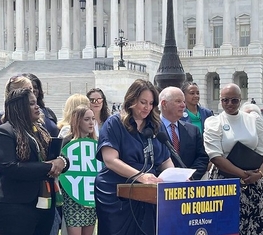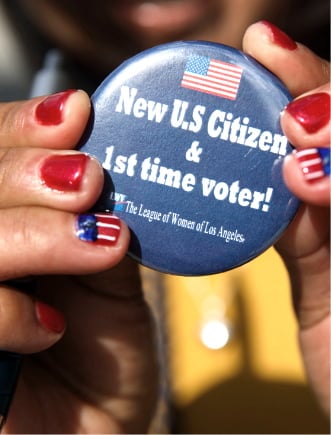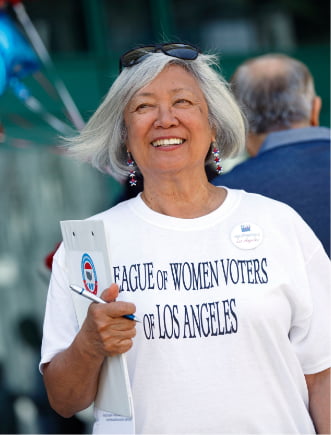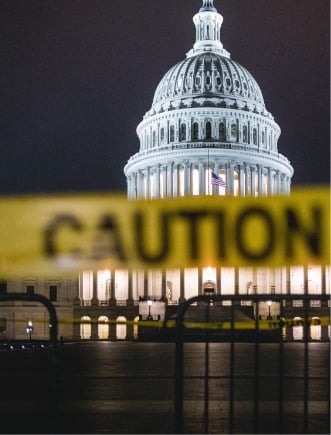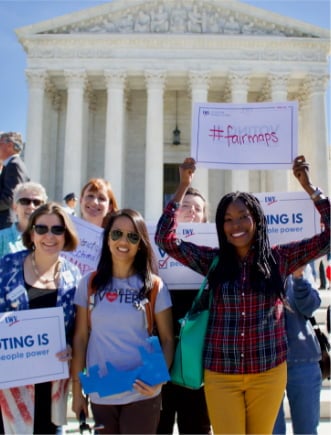This story was originally published in The Hastings Tribune.
Massive infusions of money, sometimes of unknown origin, into Nebraska’s political process is a topic of major importance confronting the state today.
That’s the assessment of Kate High, the speaker at Friday’s meeting of the League of Women Voters of Hastings.
“Dark money” has driven itself into Nebraska’s political climate, and the League of Women Voters discussed its impact on the state and its electorate.
High, of Lincoln, was invited to speak at the Feb. 24 noon meeting at the YWCA of Adams County. She has worked in program accuracy for the Nebraska Department of Health and Human Services, is a past state officer of the League of Women Voters, and has done extensive research on the role of money in politics.
Dark money in politics is money of unknown origin that is spent to influence elections.
According to High, this money often flows onto the political landscape through nonprofit organizations, limited-liability companies, political action committees, or individuals.
These entities aren’t legally required to disclose where they got the money, so the ultimate source of the funding remains unknown, or in the dark.
“Big money” can be associated with “dark money” when the dark money comes from a large operation — which, according to High, often may be the case.
“Big money and dark money are the biggest issues facing politics in Nebraska,” High said Friday, giving various examples of its prevalence throughout the years.
In 2016, a postcard was sent flooding the mailboxes of Nebraska citizens.
This postcard served as an attack on state Sen. Les Seiler of Hastings, who was running for re-election in District 33.
According to High, the postcard made negative assertions about Seiler and was meant to sway people from aligning with him, yet wasn’t considered an official political advertisement because it didn’t use the language of “vote for” or “vote against” Seiler.
Because the postcard wasn’t an official campaign ad, whoever mailed it out didn’t have to disclose who paid for it, High said, declaring it an example of dark money working behind the scenes.
Fast-forward to the 2022 Nebraska election, when Republican gubernatorial candidates Charles W. Herbster and Brett Lindstrom were hit especially hard with third-party political attack ads during the primary season.
Herbster and Lindstrom went on to be defeated in the primary by Jim Pillen, who later won the general election.
“Dark money won the 2022 governor election,” High said.
Dark money has several hidden impacts on the political climate, she said.
First, it drives candidates to big money and lobbyists, leaving the power in the hands of those outside the campaign.
Likewise, it pushes candidates to support big-money agendas. Candidates also don’t engage in forums and debates as they let the money and the media speak for them.
It leaves the voters in the dark, as they no longer receive the unbiased information they need, and it turns the public off from political participation.
High offered a few ideas for tackling the issue of dark money in Nebraska, noting that Nebraska is one of the few U.S. states that has no limits on individual contributions to political campaigns.
The first option is to take an incremental approach to updating Nebraska accountability and disclosure laws, she said.
The steps would include implementing individual contribution limits, banning in-session fund limits, ending “pay to play,” ending revolving-door personnel situations, ending dark money, and increasing enforcement.
The League of Women Voters said an incremental approach also would include looking into state Sen. Carol Blood’s proposed legislation, LB9, which requires dark money groups to file campaign finance reports; and LB559, which advocates for the electronic filing of statements of financial interests and requires elected officials to file statements.
The second option would be to return to public financing of campaigns.
This removes ways for dark money to enter the political system by bringing contributions out of the dark and into the light.
This system uses tax money to match a certain amount of each individual contribution so that the donors will be disclosed.
The last option is to amend the U.S Constitution. This is High’s recommended option, and it would require a national effort to enact the so-called “Democracy For All Amendment,” which would require full disclosure of contributor information.
The League of Women Voters chooses to highlight this topic because it believes money in politics is one of the biggest issues at both the national and local level, and that it is important that the electorate is informed.
High said just getting factual information about dark money into the public square could be helpful.
“Community groups could take this on as a project, and it doesn’t have to be political, it could be just informing,” she said.
Community advocacy “truly is the key to getting a handle on this issue,” High said.
What You Can Do
The Latest from the League
The League joined a letter to U.S. Senators urging them to pass the DISCLOSE Act of 2014.
Read a guest blog post by the League of Women Voters of California on their advocacy campaign that resulted in a big win for campaign disclosure.
The Campaign Finance Task Force has completed an informational paper that covers a brief history of LWV action on campaign finance, what the LWV has done, is doing now and what Leagues can also do.

